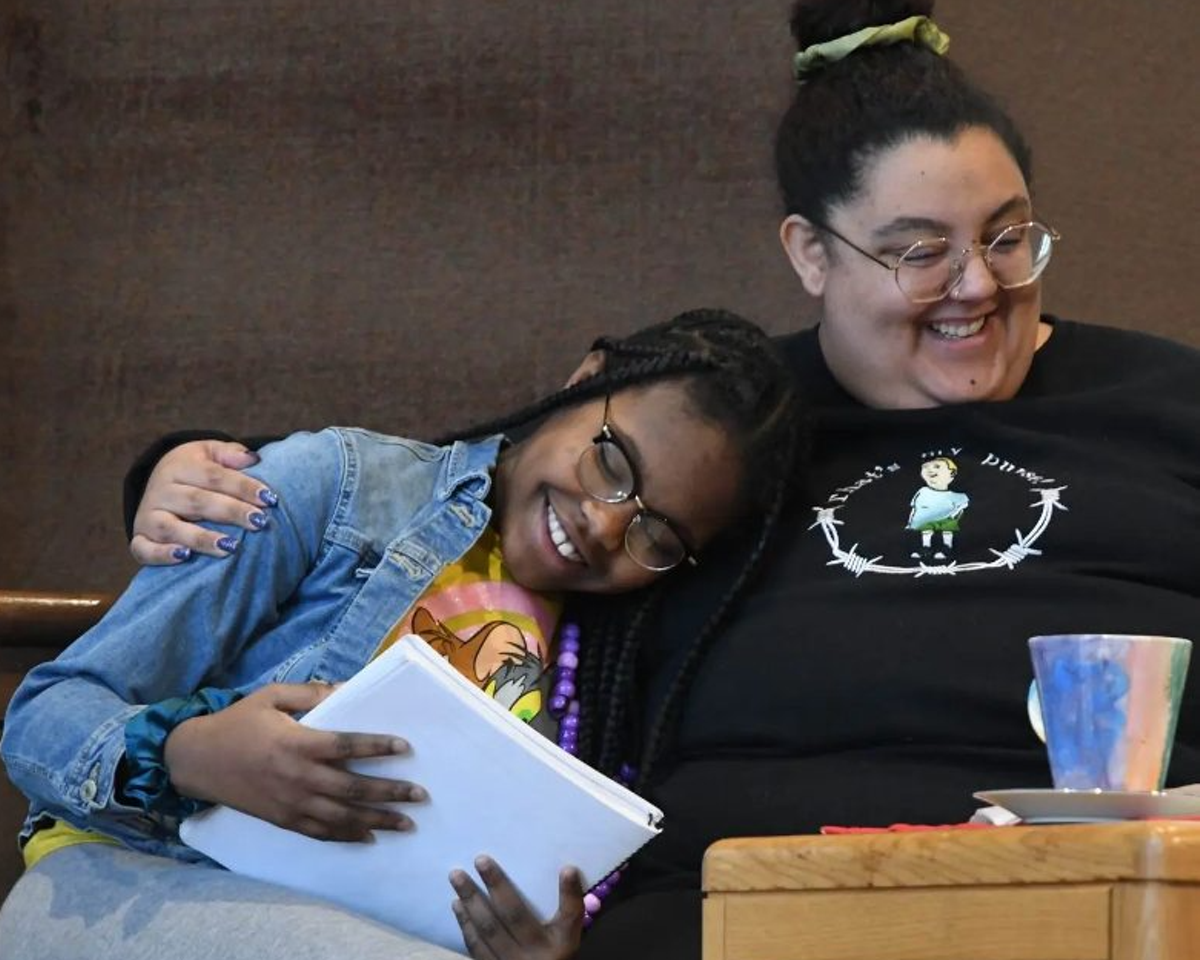According to an old saying, “history is written by the winners.” I think it’s more accurate to say that history – the real stuff – is more likely to be erased by the winners. There is plenty of evidence for that in the legacies of exclusion that have marginalized non-white, non-cis-male history in US education, culture, and arts. And the urgent rear-guard panic rising around the country around ideas like critical race theory around the apparent horrors of having inclusive books in school libraries is just one more desperate gasp from folks who think that the way to control the future is to hide from the past.
If the winners are erasing history, who, then, is actually writing it? I think it’s the folks who stand outside the winners’ circle looking in with a critical eye and the will to look beyond the smoke and mirrors of patriotic fairy tales. And though some of those folks are making their stand in academe and in politics, many of them work in the arts.
And many of those folks work in the theatre, where the barriers to doing important work are few. Theatre can tell a powerful story on a shoestring budget. Theatre doesn’t require a proscenium arch, or fancy lighting, or an expensive sound system – although those things are nice. All you need for theatre is a story to tell, a script, a group of willing performers, and a place to perform.
Playwright Michael Tee, who moved to Louisville about six years ago, has been acting, producing and directing plays for some forty years, mostly in the northeast before moving here, where he staged several plays at the First Unitarian Church before the pandemic put the brakes on his work.
Much of his work is rooted in history, and based on a combination of deep-dive research and imagination. In Louisville, he has previously presented plays looking at figures like Frederick Douglass, Paul Robeson, Rosa Parks, and (just before the pandemic) a speculative fiction looking ahead to the first female American President.
Over the next couple of weekends, Tee returns to the stage at the First Unitarian Church and at the Southwick Community Center with a play produced by Community Control: Now Louisville that explores a critical moment in the history of the U.S. Civil Rights movement – and highlights the ways in which during the early years of the twentieth century Louisville was one of the epicenters of that movement.
The play, “Let It Resound Loud As The Rolling Sea: Ida B. Wells In Louisville,” is an imaginative reconstruction of events that could plausibly have occurred around 1905.
1905 might not strike most of us as a key moment in the history of the Civil Rights movement, in an interview, Tee pointed out that it’s forty years after the end of the Civil War, and a moment when the post-Reconstruction backlash and the rise of the myth-based so-called “Lost Cause” movement is in the ascendancy and progressive movements around racial and gender justice are moving forward through thickets of competing visions and aspirations.
Said Tee, “This is the midst of a period that saw a wave of white nationalist terrorist lynching around the country. Kentucky was affected by that violence, but most of it took place outside of Louisville – which is one of the reasons that the Black population concentrated in Louisville.”
And, said Tee, “Not enough light has been shed on the role of Kentucky and Louisville in the history of the Civil Rights movement,” noting that both Abraham Lincoln and Jefferson Davis (President of the Confederate States of America) were both born here.
After delving deeply into the history of the era – and the history of Louisville, Tee found that the role of Kentucky – and of Louisville in particular – in shaping the history of a tumultuous era that saw waves of Northern migration remains largely untold. “It’s a time when a lot of folks from other parts of the South and from Kentucky welled up in Louisville. And it’s a time when black people in Louisville were involved in all the varied political and intellectual movements of the time. It’s a time of social complexity and contradictions, and Louisville was a part of that. And although people pigeonhole Black people from that time as all holding the same views, that’s not the case. It’s a time when Black people have contending ideas about goals and strategies and tactics.
And that is the story Tee is exploring in this play, which imagines Louisville as place where figures both famous and lesser-known come together in a clash of ideas. Tee didn’t want to disclose too much of the plot, but here are some of the characters:
Ida B. Wells, an emancipated person born into slavery who became one of the central figures in the history of the U.S. Civil Rights Movement, is played by Ali Gautier. George Woodbey, also an emancipated person born into slavery, who became a Baptist Minister and a writer and political leader affiliated with the Socialist Party of America, is played by Jesse Gonzalez. Tee, himself, plays Booker T. Washington. Madison Grant, a “scientific racist” and eugenicist of the period. Madam C.J. Walker, the African-American entrepreneur who built a fortune around cosmetics and hair care, and became an influential philanthropic supporter of the NAACP and other justice causes, is played by Mariel Gardner. William Monroe Trotter, journalist (founder of the Boston Guardian newspaper) and activist, is played by Vincent Gonzalez. Other parts are played by Deajanae Elliott, Journey Guyton, Jamie King, Mahlon Heuman, Jesse Williams, Weston Bradshaw, Kinisha Carey, Nicole Doty, and Bilal Grant. •
Three performances are scheduled.
First Unitarian Church, 809 S. 4th Street: Saturday April 15, 2:30 p.m. ($15)
Southwick Community Center, 3621 Southern Avenue, Friday April 14, 7p.m. (Free)
For information:: 502-232-2742; or email [email protected]






